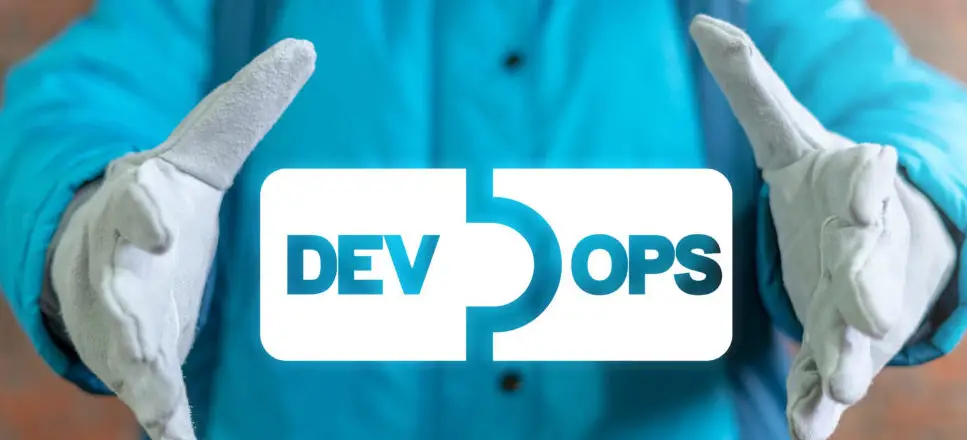From being a mere buzzword to being a mainstream trend in the field of software development, DevOps is nothing short of a radical movement that is rapidly spreading across the technical community. The concept of DevOps emerged from the juxtaposition of two big trends in the software industry. It sprung when the Agile methodology was extended to incorporate the much-needed collaboration between the operations and development staff throughout all the stages of the software development lifecycle.
To put it in simple words, DevOps refers to the practice wherein both operations and development engineers participate together in the entire service lifecycle of a product – right from the product design to the development process, through to production support.
Statista maintains that in 2018, the adoption of DevOps increased by up to 17%; rising by 7% from being only 10% in 2017.

The increasing interest in DevOps can be seen in the following Google Trends reports.

This report depicts the slowly rising interest in the term ‘DevOps’ over the past 15 years.

This report depicts the rapidly escalating interest in the term ‘DevOps’ in the last five years.
The rising popularity of DevOps is steering more and more aspiring candidates to take up DevOps training.
Who is a DevOps Engineer?
A DevOps engineer is an information technology (IT) professional who works in close collaboration with system operators, software developers and other production IT members in the software development lifecycle. This collaboration allows for better coordination among operations, development and testing functions by both automating and streamlining the product integration and deployment processes.
DevOps engineers are expert developers who are interested in deployment and network operations or system admins who have a passion for scripting and coding and transit to the development front where they can enhance test and deployment operations.
The roles and responsibilities of a DevOps engineer include:
- To design, build, test, deploy and maintain continuous integration and delivery process using different tools like Jenkins, maven Git, etc.
- To work in close collaboration with the development and operations team to create products that can both maintain and exceed the customer’s expectation.
- To have hands-on experience in designing, building and maintaining cloud-based applications with tools like AWS, Azure, etc.
- To monitor individual functions in cloud environments and write code to scale those functions to address an immediate business need.
- To be proficient in rapid-fire coding, which includes the ability to write small snippets of code in many programming languages.
- To be able to anticipate the needs of both the company and the customers, and work to bridge the gaps in technology and company operations.
- To know which tool best suits which business needs and issues.
- To automate tests, deploy the code and monitor the same.
- To be well-versed in testing in a virtual environment.
- To be able to communicate with team members and clients.
- To uphold and maintain industry standards and best practices in the field.
The career path of a DevOps Engineer
To become a successful DevOps engineer, first, you need to get your education right. You must have at least a bachelor’s degree in computer science, information technology or other related fields. After completing your graduation, you can undertake a crash course in DevOps, or you can also opt for the DevOps engineer certification offered by Amazon Web Services (AWS).
As for the skills, a DevOps engineer must first master the skills of software development. This calls for proficiency in coding in different programming languages like Java, Python, R, and JavaScript. Apart from this, you should have practical experience in working with cloud coding languages, including Bash, Linux, Apache and Microsoft server, among others. Excellent communication and problem-solving skills are two of the most coveted skills in a DevOps engineer.
It is a known fact that companies leveraging DevOps deploy code more frequently and with more accuracy than their rival firms. This is because DevOps engineers are experts in writing code to amend existing cloud platforms, and hence, they do not require to create new cloud platforms from scratch. To be able to do this, a DevOps engineer must have a few years of working experience in open-source cloud technologies along with other tools and procedures integral to DevOps, including:
- Deployment Automation & Orchestration
- Agile Project Management
- Infrastructure Automation
- Continuous Integration
- Container Concepts
- Cloud Technology
- Open Source OS
- Source Control
One cannot become a DevOps engineer directly. You have to gain work experience in roles like database administrators, systems managers and IT project managers. Usually, all DevOps job roles demand at least 2-3 years of experience in software development, continuous integration or DevOps.
A DevOps engineer is a systems engineer, automation architect, automation engineer, integration specialist, developer-tester, release manager, security engineer, and DevOps architect – all rolled into one. Naturally, a DevOps engineer must be well-versed in different technologies, tools, and systems. Since the field of DevOps is only a few years old, it is still evolving. A career in this line calls for an unquenchable thirst for knowledge and willingness to upskill and work outside one’s comfort zone and specialization. The best way to upskill is to enrol in a DevOps engineer training course offered by reputable institutes. The structured approach of such training courses ensures that you gain a strong understanding of the field.




